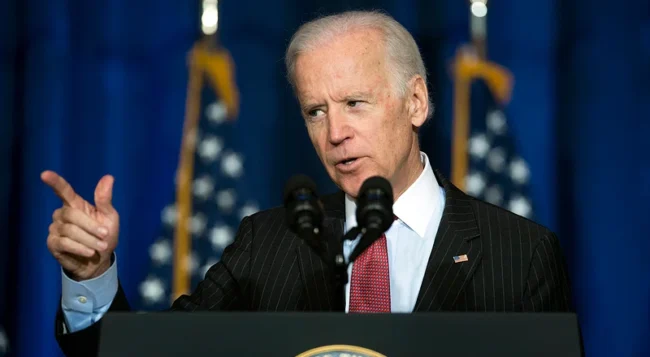Originally published by The Globe and Mail
Now that Joe Biden has been declared president-elect of the United States, it’s time to start preparing for the impact that his climate plan could have on Canada.
Mr. Biden is proposing a range of ambitious regulations and investments to help the United States achieve net zero emissions by 2050, echoing a growing number of countries, including Canada, that have made similar pledges. Even though the U.S. Senate will most likely remain under Republican control, there’s a lot he can do with executive power alone.
One proposal in Mr. Biden’s Made in America plan that could be hugely consequential for Canada is “a carbon adjustment fee against countries that are failing to meet their climate and environmental obligations.”
A border carbon adjustment fee is designed to make sure domestic producers are treated fairly relative to foreign competitors. Here’s how it works: First, put a carbon fee on imports so that they face the same costs as domestic producers that pay a carbon price. Next, exempt exports from the carbon tax to keep them on a level playing field with global competitors who don’t incur the same costs related to their emissions.
A Biden border carbon adjustment would accelerate the decarbonization of the Canadian economy by incentivizing companies to reduce their emissions, but it comes with risks that must be managed. Our top export, oil and gas, goes almost exclusively to the U.S. Mr. Biden’s carbon fee could put Canadian producers at a competitive disadvantage against U.S.-produced oil that has a lower carbon footprint, just as he’s cancelling the Keystone XL pipeline project that would improve their access to the U.S. market.
Once Mr. Biden moves forward with his border carbon fee, Canada will need to push for an exemption. The U.S. will rejoin the Paris Agreement under the new administration and is already moving faster than Canada toward achieving its targets, so we’ll need to demonstrate that we’re serious about stronger climate action – and that border carbon charges are unnecessary for U.S. imports from Canada. This will require at least two policy changes.
First, we’ll need to change the way we apply a carbon price to large industrial emitters such as refineries. Instead of the Output-Based Pricing System (OBPS) Canada uses today to protect competitiveness by pricing a plant’s emissions relative to its industry peers, we will need to charge large emitters the full carbon price – and implement our own border carbon adjustment system.
Levying the full carbon price will give Canada the best chance to secure an exemption from paying carbon tariffs on exports to the U.S. With a border carbon adjustment, our exporters will be refunded the carbon tax on products shipped to countries that aren’t taking sufficient climate action. Some Canadian politicians have already begun advocating for such a policy – this week, Green Party Leader Annamie Paul suggested creating a North America-wide border carbon adjustment.
Second, we’ll need to keep increasing our carbon tax to demonstrateour commitment to reduce emissions. Canada already has a price on carbon that will rise to $50/tonne by 2022. That’s a good start, but hitting our 2030 Paris targets, not to mention net zero emissions by 2050, will require higher carbon prices. To have the best chance of meeting our targets and avoiding U.S. border carbon fees, we should continue raising the carbon price by $10/year through at least 2030. (If our price exceeds the U.S. border fee at any point, we should credit the difference back to our exporters.)
A rising carbon price – combined with complementary regulations and investments – is also the best way to prepare our economy for a global marketplace that will increasingly penalize carbon-intensive goods. In addition to the Biden border fee, the EU has committed to charging border adjustment fees by 2023, and other countries are sure to follow. Canada’s export industries need to continue aggressively decarbonizing if they are to compete in the new low-carbon economy. A rising carbon price provides a powerful incentive.
Things are moving in the right direction. The Canadian oil sands, for example, have already reduced their upstream emissions –those produced during extraction and initial processing –per barrel by 20 per cent since 2009. Some fields are already producing oil with emissions-per-barrel below the U.S. West Texas Intermediate average.
But much more needs to be done to fully decarbonize our economy. Canadian business leaders, from the Canadian Chamber of Commerce to most oil majors, agree that carbon pricing is the best way to get there. Canadian oil companies can continue to compete, even grow, alongside rising carbon prices, according to modelling my organization will release later this year.
It’s not just oil and other carbon-intensive exports that will benefit from carbon pricing. Canada has trailblazing companies working on carbon capture and storage, clean hydrogen production, geothermal energy and low-carbon cement, to name just a few. With the right policies in place, we have the opportunity to be global leaders in clean tech. But there’s no time to waste – Mr. Biden’s victory has accelerated the international race to capture this clean-tech market.
Of course, a rising carbon price will impose extra costs on business and consumers. That’s where complementary policy comes in. A border carbon adjustment protects our businesses, ensuring they compete on a level playing field with foreign counterparts. And carbon tax proceeds can be reinvested to support business in decarbonizing – or to lower other business costs. Consumers will continue to receive gradually increasing rebates which, for most households, exceed the costs of the tax.
With a Biden administration likely to usher in a new era of American climate action starting in January, and the rest of the world pushing to decarbonize, we have to keep upping our climate game or risk being left behind. A rising carbon price paired with other smart policies is the best way to do it.








